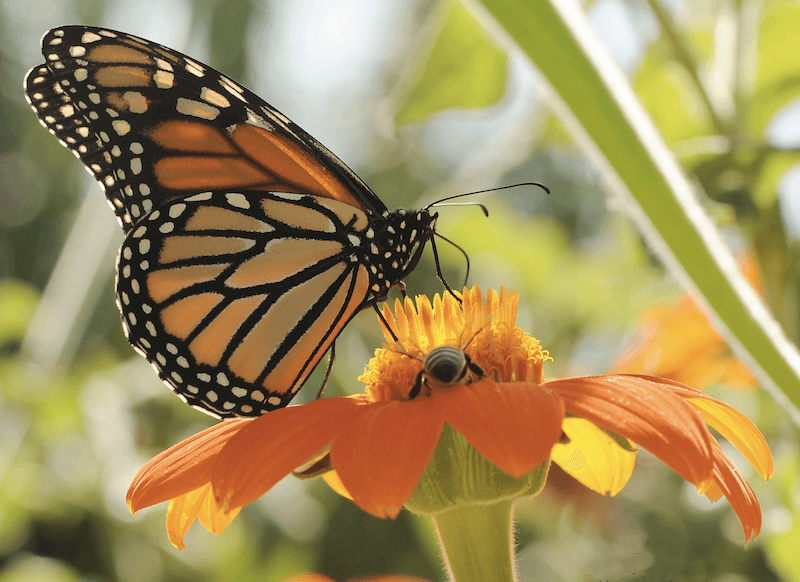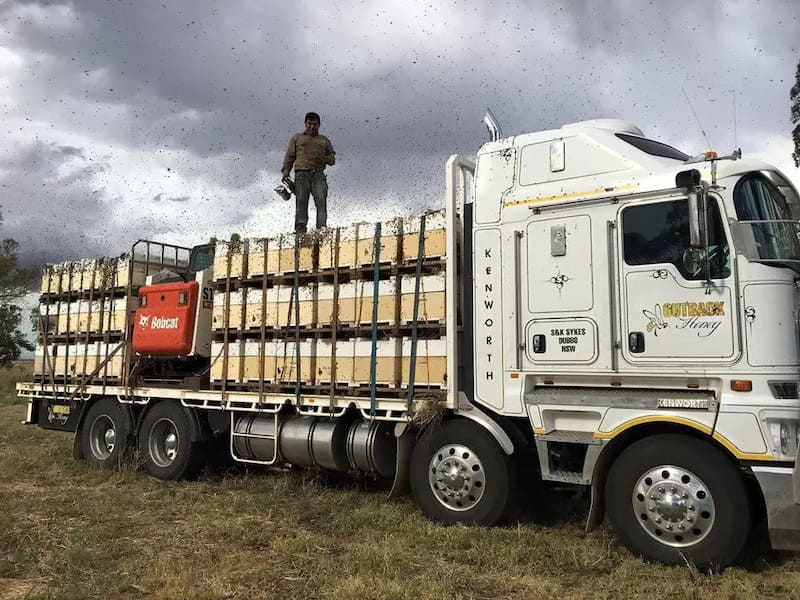
Pollinators are essential for the reproduction of flowering plants and for the production of many fruits, vegetables, and nuts that make up a significant portion of the human diet. Pollinators, including insects and birds, play a vital role in maintaining the balance of ecosystems and providing biodiversity. The critical importance of pollinators for agriculture cannot be overstated, and their decline in recent years has led to serious concerns about food security and environmental health.
Pollinators are animals that transfer pollen from the male reproductive organs of a flower to the female reproductive organs, allowing fertilization to occur. This process leads to the formation of seeds and fruit, which are essential for the continuation of plant species and for the production of many crops that humans rely on for food.
Insects such as bees butterflies, and moths are the most important pollinators, but birds such as hummingbirds also play a significant role. Pollinators are attracted to flowers by their color, fragrance, and nectar, which they feed on while also transferring pollen from flower to flower.
Pollination occurs in many ways, depending on the plant species and the pollinator involved. For example, bees are efficient pollinators of many fruit trees, including apple, cherry, and peach trees. These trees depend on bees to transfer pollen between their flowers, ensuring that fruit develops.
Butterflies and moths are important pollinators for many wildflowers and garden plants, such as milkweed, lavender, and coneflowers. They are attracted to the bright colors and fragrances of these plants and play a critical role in their reproduction.
Hummingbirds are important pollinators for many species of flowering plants, including trumpet vine, salvia, and bee balm. Their long, narrow beaks are adapted for feeding on nectar deep inside the flowers, and their movements between flowers help transfer pollen.

Many fruits, vegetables, and nuts depend entirely on pollinators to produce fruit. For example, almonds, apples, avocados, blueberries, cherries, cranberries, peaches, pears, plums, and strawberries are all dependent on bees for pollination.
Many vegetables also require pollinators, including cucumbers, melons, squash, and tomatoes. Without pollinators, these plants would not produce fruit and would fail to provide the food that humans rely on for sustenance.
Pollinators are essential for the maintenance of healthy ecosystems and the promotion of biodiversity. They play a critical role in the reproduction of many plant species, including those that are not used for food, and are therefore essential for the survival of many animal species that rely on these plants for habitat and food.
Pollinators also play a critical role in the production of crops that are used for biofuels and other industrial purposes, making them an essential component of the global economy.
The critical importance of pollinators for agriculture cannot be overstated. Without pollinators, many plant species, including those that provide essential food sources for humans, would not be able to reproduce, leading to widespread food shortages and environmental degradation. It is therefore essential that we take steps to protect and conserve pollinator populations and their habitats, to ensure the continued health of ecosystems and the sustainability of human food systems.
Industrial agriculture is heavily reliant on the pollination services provided by bees and other pollinators because of declining bee populations in nature. Without bees, the production of many crops would be severely impacted, leading to food shortages and economic losses. This is where the commercial pollinating industry comes in, providing industrial pollinators to farmers who need to ensure the successful pollination of their crops.
Farmers across the globe rely on bees to pollinate their crops, but many factors have led to a decline in the number of bees and other pollinators. Pesticides, habitat loss, disease, and climate change have all contributed to this decline, making it increasingly difficult for farmers to rely on natural pollination services. This is where industrial pollinators come in, providing a reliable and efficient method of pollination that farmers can depend on.
Mobile bee pollination operations are a key component of the commercial pollinating industry, providing bees and other pollinators to farmers who need them. These operations typically involve the transport and “renting” of hives containing bees to farms where they are needed for pollination. The bees are then released into the fields, where they will begin to pollinate the crops.
Mobile bee pollination operations are particularly important for crops that are heavily reliant on pollination services, such as almonds, apples, cherries, and blueberries. In the case of almonds, for example, each acre of almond orchard requires a minimum of two hives of bees to ensure successful pollination.
Mobile bee pollination operations are typically carried out by professional beekeepers who specialize in providing pollination services to farmers. These beekeepers will have a fleet of trucks and trailers equipped to transport hives of bees safely and efficiently. Billions of bees are transported across the country spring and fall.

Industrial pollinators are used to pollinate a wide variety of crops, including fruits, vegetables, nuts, and seeds.
Many of these crops are grown in regions where there are not enough natural pollinators to ensure successful pollination. For example, almond orchards in California are heavily reliant on industrial pollination services due to a lack of natural pollinators in the region.
The commercial pollinating industry plays a critical role in ensuring the success of agriculture by providing industrial pollinators to farmers who need them. Mobile bee pollination operations are a key component of this industry, providing a reliable and efficient method of pollination that farmers can depend on.
Ready to transform your land into a high-yield, sustainable farm? Let Crop Circle Farms design and build a custom, low-impact, and water-efficient farm tailored to your needs. Double your income and cut your costs in half! Contact Us
Help us expand our mission to revolutionize agriculture globally. We are seeking partners to implement Crop Circle Farms to feed people in need. Together, we can build scalable food production systems that save water, reduce costs, and feed thousands of people. Contact Growing To Give